Posted in: 05/17/2022
World Recycling Day is a date created by the United Nations Educational, Scientific and Cultural Organization (UNESCO) to encourage the correct disposal of waste and its reuse .
In the last 10 years , waste production has increased by 19% in Brazil. The irregular disposal of rubble and garbage is an issue that involves most Brazilian cities. The country is one of the countries that produces the most garbage in the world, occupies the 4th place on the list, and has the sad history of being one of the countries that recycles the least: in 2020, only 1254 Brazilian cities (out of 5570) officially carried out a recycling project.
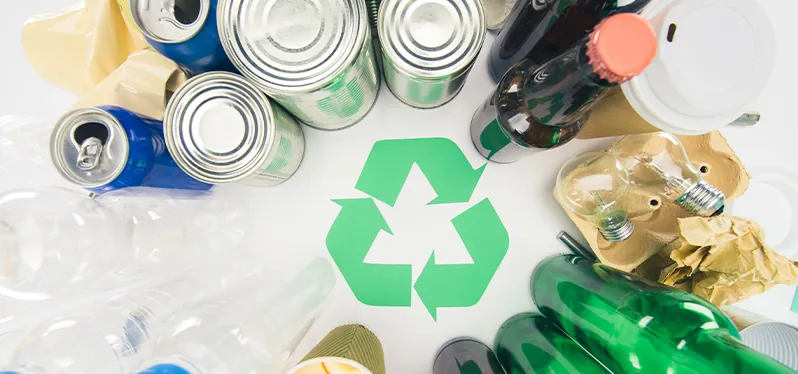
According to data from the report produced by the Brazilian Association of Public Cleaning and Special Waste Companies (Abrelpe) in partnership with the UN Environment, in Latin America alone, 145 thousand tons of waste are disposed of irregularly daily, putting the lives of 170 million people at risk of contamination.
According to data from the Panorama of Solid Waste in Brazil , released in 2021 by Abrelpe, each Brazilian produced, on average, 1.07 kg of waste per day in 2020. The pandemic directly influenced the increase in solid waste production , and Brazil reached the historical mark of 82.5 million tons of waste generated. The Southeast region continues to generate the most waste, with around 113,000 tons per day , almost 50% of the total of 225,965 tons per day produced in the country.
Of this total, 29 million tons of garbage are discarded in the wrong place , dumps or irregular landfills. With the reuse of only 4% of all garbage collected, Brazil is still far from completing the task of actually extinguishing dumps and reducing the amount of waste deposited irregularly in the environment. Staying, thus, far from complying with the National Solid Waste Policy .
In São Paulo, for example, only 2% of the waste produced is recycled – the rest is distributed among the 3 landfills in the city. According to Abrelpe, SP is responsible for the production of around 73 million tons of solid waste per year. Of these, 43 million tons are sent to landfills, and 29 million tons are discarded illegally .
The Organization also brings other important data to understand how Brazil is lagging behind in terms of its waste management.
Using the Recycling Yearbook as a basis, developed by the National Association of Collectors and Collectors of Recyclable Materials (Ancat) and Pragma Sustainable Solutions, in partnership with LCA Consultores, Abrelpe points out that in 2019 the following numbers of recyclable materials were recovered:
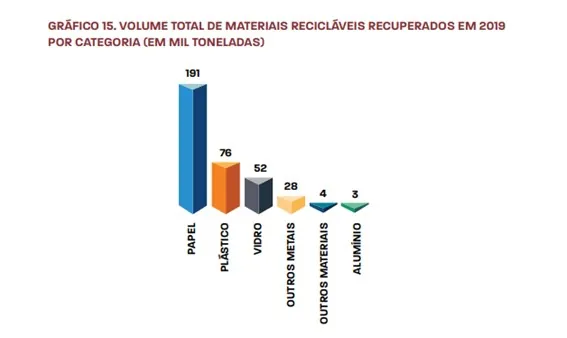
Do you know what the reverse logistics system is ?
The National Solid Waste Policy, implemented in 2010 , boosted/made mandatory the idea of reverse logistics and responsibility for the life cycle of products, encouraging companies to adopt actions related to post-sales and post-consumption.
Companies, largely responsible for most of the production of pollutants , need to be responsible for the material they produce. Guarantee the removal of this material from the environment and its reuse .
In addition, reverse logistics moves several areas, such as cooperatives , ecopoints , intermediaries that buy and separate this material. Reintegrating materials into the production cycle is an alternative to mitigate the environmental impacts caused by waste disposal.
It is worth mentioning that, according to Abrelpe, even with the validity of the National Solid Waste Policy, “which differentiates waste and rejects and introduces the principle of hierarchy in waste management, whereby an order of priority of actions must be observed in the forwarding the management and management of materials”, Brazil maintains a linear system of urban solid waste management – which does not favor the improvement of the service.
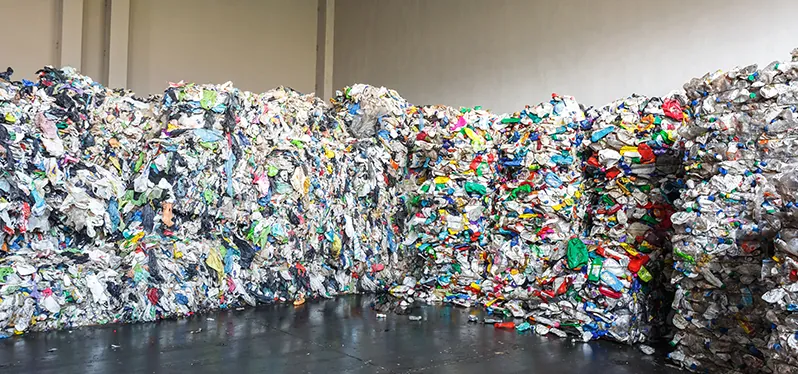
Recently, the Ministry of the Environment and the Ministry of Economy launched the Recicla+ Program , with the aim of encouraging private investment in the recycling sector .
Expectations about the program, in addition to being considered great environmental news, were that it represented an official advance in the circular economy , favoring the implementation of really efficient reverse logistics.
Recicla + brings the proposal to transform collectors into recycling agents , providing extra income for about one million people, according to government estimates.
However, according to experts, there are pain points in this new approach. One is related to the fact that in this new decree, which amends the National Solid Waste Policy, the part referring to Solidarity Selective Collection (DF5940/2006) was excluded and the Citizen Selective Collection Program was created .
However, there was no logistical structure and guidance for the bodies, removing the obligation to donate waste to cooperatives , making it a priority option. That is, a company will not necessarily sell its recyclable waste to cooperatives.
The issue of requiring cooperatives to issue invoices has also been a problematic point, since most are unable to do so. The Federal Government still needs to clarify some of these issues in more depth.
Although an important initiative for private sector companies , carrying out recycling and being part of the reverse logistics process is not an initiative that depends only on them.
For this reason, the process must also count on the collaboration of the public power – through the creation of legislation, awareness and inspection – and with the contribution of the population .
But how can people contribute in everyday life? Having a conscious posture is fundamental. Therefore, it is worth remembering the tips for correctly disposing of them and collaborating with selective collection :
And don’t forget the 5R’s, practice this idea: refuse, rethink, reduce, reuse and recycle.
In closing, we suggest the great infographic produced by the Akatu Institute , which brings more tips for the correct disposal and recycling of waste in everyday life that is worth checking out.
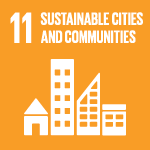
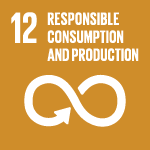
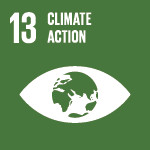
Sign up and receive our news.